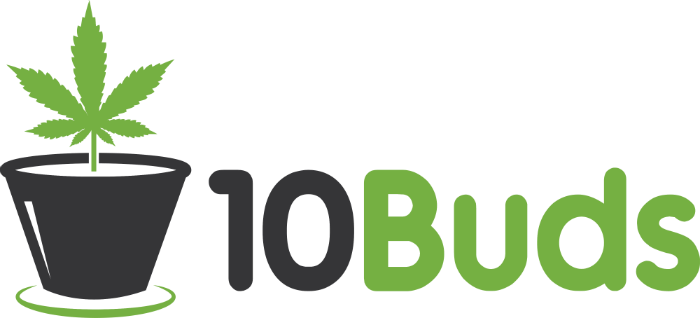CBD as a Treatment for Autism
CBD has the potential to dramatically reduce some symptoms related to autism, giving hope to parents searching for a solution.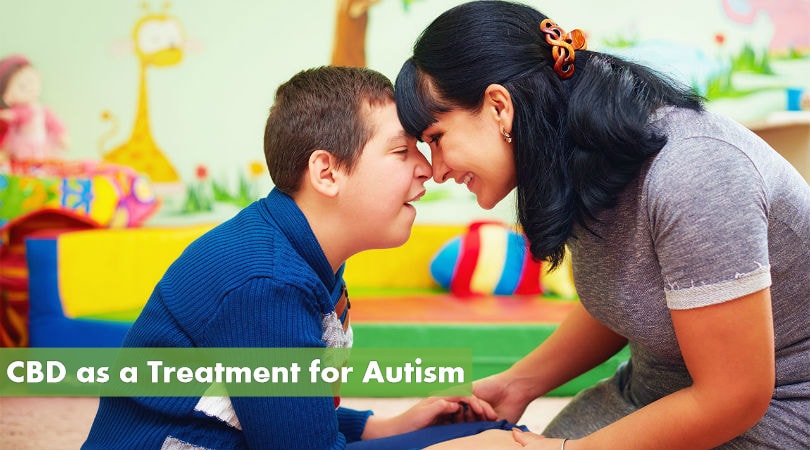 With autism on the rise and available treatment options giving mixed results, many parents have begun using CBD to treat their kids’ autism. CBD has attracted considerable interest lately for its soothing effects on several common mental health conditions. The research so far shows that CBD may be highly effective in reducing symptoms of autism and several conditions that often coincide with it.
With autism on the rise and available treatment options giving mixed results, many parents have begun using CBD to treat their kids’ autism. CBD has attracted considerable interest lately for its soothing effects on several common mental health conditions. The research so far shows that CBD may be highly effective in reducing symptoms of autism and several conditions that often coincide with it.
Autism is an umbrella term for several Autism Spectrum Disorders (ASD), including Asperger Syndrome (or “Asperger’s,” as it’s frequently called). Autism is a complex developmental disorder, that can affect behavior, cognition, social skills, and sensitivity to noises and sensations, among other symptoms. The presence and severity of these or any autism symptoms vary widely from person to person. The number of children diagnosed with autism in the United States has been rising, up from approximately 1 of every 125 children in 2004, to approximately 1 out of every 59 in 2018. Boys are 4 times more likely than girls to have autism.
Despite the fact that there has been much research done on autism, there are still many unanswered questions. Scientists have pinpointed that genetics and environment appear to play a role, but still haven’t defined the cause of autism. There is no known cure for autism, and no across-the-board therapy or medication is known to work for all patients with these disorders.
CBD for autism
CBD (cannabidiol), a chemical compound found in marijuana, may be very effective in the symptom management of autism and the other disorders that often rise up alongside it. CBD does not impart a “high,” and can be extracted (or synthetically manufactured) to be used completely independently of marijuana. This means that even children can benefit from CBD-based treatments without being exposed to the effects of THC (tetrahydrocannabinol), including anxiety, euphoria or “feeling high.”
CBD is a cannabinoid, a type of chemical that the human body can easily process. Our bodies naturally make their own cannabinoids, which play a role in the regulation of many bodily functions, including movement, sleep cycles, and mood. Children with autism have lower concentrations of at least one of these naturally-produced cannabinoids. CBD has the potential to pick up some of the slack, improving the disrupted communication between the brain and other body systems that some researchers have theorized as the cause of autism.
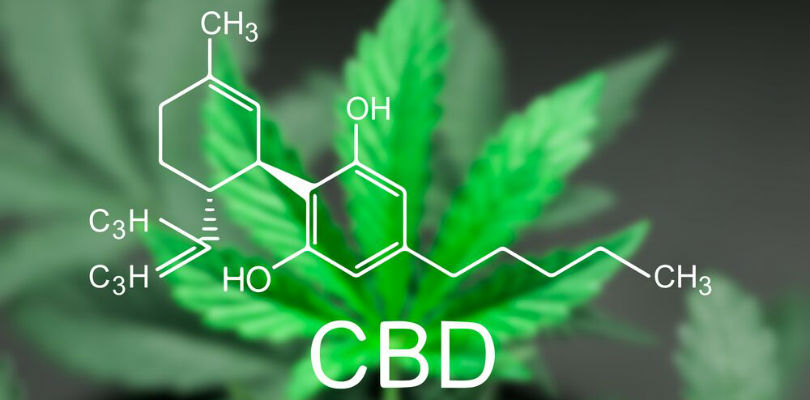
Children can benefit from CBD-based treatments without being exposed to the effects of THC, including anxiety, euphoria or “feeling high.”
CBD has attracted a great deal of attention in recent years for its medicinal potential. Studies on CBD’s relationship with autism are still rather limited, though many prominent organizations and institutions, including Autism Speaks and Harvard University, are actively encouraging further research. However, the existing findings, alongside an ample amount of anecdotal evidence, show a strong link between the use of CBD and the improvement of autism symptoms. Fewer studies have been done on the effects of cannabis containing both CBD and THC on autism. Those that have been done have overall shown positive effects but were also focused primarily on high-CBD strains. While it is entirely possible that THC and CBD may synergistically be effective against autism, there isn’t enough evidence to definitively say whether there is any benefit to treating autism with THC. CBD is generally regarded as safer, especially in the treatment of children, as it is not psychoactive and is less likely to cause anxiety.
Encouraging evidence that CBD could help autism
In a groundbreaking 2018 CBD and autism study, researchers in Israel found significant improvements in the behavior of kids with autism who were treated with cannabis oil. The oil used in the study contained 20% CBD and also a small amount of THC (1%). The 60 children in this study had not responded to conventional medical therapies, but after at least 7 months of treatment with CBD oil, 80% of their parents reported a decrease in disruptive behaviors associated with autism. 61% of these parents noted a significant decrease in these behaviors. 47% of the kids in the study were reported to have improved communication following treatment, and 39% reported a decrease in symptoms of anxiety. Even the parents themselves reported lower stress levels following the positive results of their children’s treatment with CBD oil.
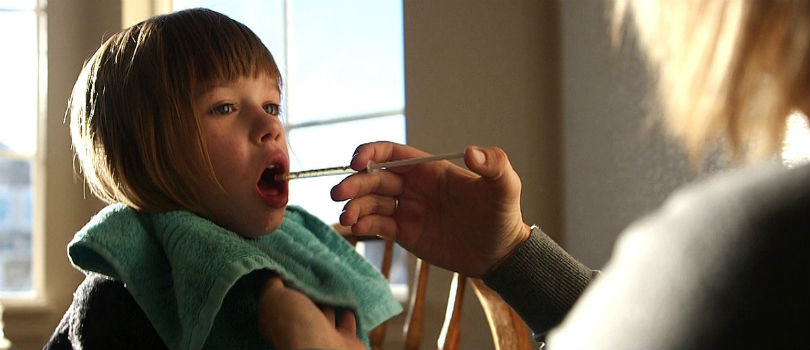
Researchers in Israel found significant improvements in the behavior of kids with autism who were treated with cannabis oil.
CBD oil for kids with autism
CBD is legal in all 50 U.S. states, but it’s easier to obtain in some states than others. In any of the states where marijuana is legal for recreational use, CBD oil will be readily available in any dispensary. In states where medical marijuana is legal, CBD products may be relatively easy to find in natural-foods stores or herb shops, as well as dispensaries. 5 U.S. states (Delaware, Louisiana, Michigan, Minnesota, and Pennsylvania) currently consider autism a qualifying condition for prescribed medical marijuana, potentially making access to high-quality CBD products easier in those states. A significant number of kids with autism also suffer from epilepsy, which is a qualifying medical marijuana condition in many states.
In states where marijuana is still completely illegal, you can still legally obtain CBD by ordering it online. To ensure you are getting a legal product, look for hemp-extracted CBD oil. Hemp oil does not contain trace amounts of THC, unlike cannabis-extracted CBD oil, which sometimes does. In Canada and Australia, CBD is legal but currently requires a prescription to obtain.
Obviously, despite their fast-acting effects, smoking or vaporizing CBD are not recommended delivery methods for kids. Edible options (including CBD oil), oral sprays, or even topical lotions or creams may be good alternates.
CBD for related conditions to autism
Epilepsy, depression, and anxiety disorders often go hand-in-hand with autism, each disorder potentially exacerbating symptoms of the other. CBD has been shown to improve symptoms of all of these conditions and could provide simultaneous relief.
Autism and epilepsy
There has been a strong correlation found between autism and epilespy. People with epilepsy show higher rates of autism, while autistic people also show higher rates of epilepsy than the general population. Around 20% of people with ASD also have epilepsy, and it’s believed that there are similarities in the ways these two conditions affect the brain. Epilepsy, a disease that causes seizures, can be very dangerous and requires medication to safely manage. However, as a supplemental treatment, CBD has been shown to reduce the frequency of seizures. In 2018, the FDA approved a CBD-based medication for the treatment of rare varieties of childhood seizure disorders. As the link between these two conditions is further studied, it is possible that a similar drug could become available for autism in the future. For the percentage of children receiving this treatment who also have autism, it is possible that symptoms of both conditions will be improved.
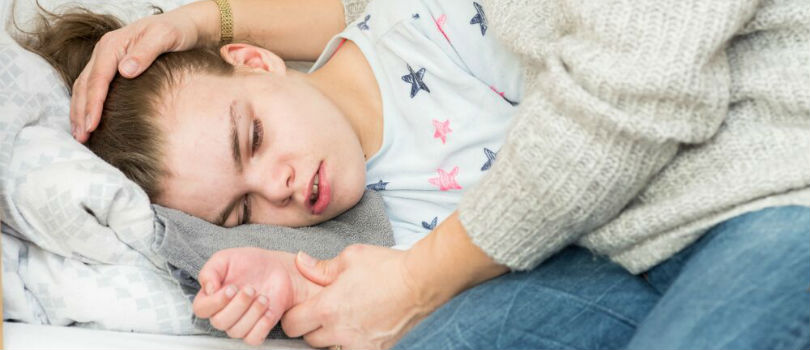
CBD has been shown to reduce the frequency of seizures.
Autism and depression
Nearly 20% of adults with autism also suffer from depression. Young people with Asperger’s suffer from depression at a rate 4 times higher than the general population. CBD has been shown to directly interact with dopamine and serotonin receptors in the brain and to have an anti-depressant effect. The part of the brain that handles memories and learning, the hippocampus, is smaller than normal in people with depression. Anti-depressants (including CBD) have been shown to have both neurogenesis and neuroprotective effects, helping the hippocampus grow new connections, and protecting against cell death.
Interestingly, the health of the hippocampus may play a significant role in some of the memory-specific symptoms related to autism. Often, people with autism lack the ability to form “autobiographical” memories but can memorize an impressive amount of facts about subjects that interest them. More research needs to be done to determine if CBD does, in fact, improve the ability to form autobiographical memories, but the potential is intriguing.
Autism and anxiety
Anxiety is not considered a core symptom of autism, but approximately 40% of kids and young adults with ASD also have at least one anxiety disorder. These can range from social anxiety to obsessive-compulsive disorder, to phobias of specific sounds or situations. Sleep difficulties are often present alongside autism and anxiety disorders. CBD has a fast-acting effect on the ease of falling asleep and the reduction of anxiety, due to its ability to connect directly to serotonin receptors in the brain. As with depressed brains, the brains of people with anxiety disorders also have a smaller hippocampus. The neurogenesis effect of CBD can help users realize significant improvements in anxiety symptoms. CBD may also improve the impaired functioning of the hippocampus related to ASD, though more research is needed to discern to what degree.

The neurogenesis effect of CBD can help users realize significant improvements in anxiety symptoms.
Already, treating autism with CBD has improved the quality of life for many families, and it’s likely that this trend will continue. In the years to come, we can expect to see much more research on the connection between CBD and autism. So far, the evidence is encouraging – CBD appears to positively affect the same parts of the brain that malfunction in patients with autism. Studying CBD may help bring this treatment option out into the mainstream and could even give scientists new insight into the inner workings of autistic brains.
